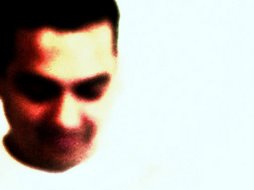I thought this is the Bal Thackeray very few people knew. But with around 20 lakh people attending his funeral procession, this was the Balasaheb Thackeray everyone knew. Not since Mahatma Gandhi have so many people congregated together for a politician's funeral. There are people from all communities, religions, castes and political parties.
I know Bal Thackeray as an amazing orator and an artist. Someone who could connect with the common man as well as the rich and famous.
When Thackeray launched his political party, he fought for issues related to identity of the local population like job reservation for Marathi youth. When you get a guy a job, you end up with 5 votes of the family. And thus, for the not-so-educated Marathi youth born in 1950s and 60s, he became the undisputed god of "Marathi Asmita" (Marathi Ego/Pride). Some from this generation rose from being "rasta chaap" nobody's to political bigwigs in Maharashtra. Chagan Bhujbal, Narayan Rane, Manohar Joshi, Sanjay Nirupam, Sanjay Raut, Late Anand Dighe - the list is endless. Their example ensured that millions others were impacted by his ideology, his largesse in terms of guaranteed jobs in government sector through well orchestrated Labor Unions and his strategically polarized views (first for Marathis, then Hindus and then Mumbaikars). For this generation, this is an end of their era. They have lost their identity. If you watched TV, this was the generation that openly wept upon hearing the news of his demise. They will miss him the most.
As a politician, Thackeray always spoke either for or against something or someone. He unabashedly took sides and changed his stance when it suited his political ambitions. But he did with great conviction and always got away due to his strong oratory. Most importantly, he was never a fence-sitter like most other politicians in his generation. This is one quality which even his greatest detractors found to be endearing (but difficult to emulate). The "Marathi Manoos" in Maharashtra too fell for this quality.
What is surprising is that while on one side he spoke his mind on political issues, he had a circle of friends who were completely out of sync with his political ideologies. They loved him for what he was, inside the closed doors of Matoshree - a genial man who smoked pipes and cigars, drank beer and wine, cracked jokes, and most importantly kept his word, irrespective of his political calculations. Then there was another Bal Thackeray who publicly spoke ill when some of his closest friends who became State leaders under Shiv Sena left his party - like Bhujbal, Rane, Nirupam and Raj Thackeray. But rarely did they rebut him in public. So strong was his hold on even his fiercest opponents.
But beyond all this, as a political leader with a huge following amongst common man as well as other political parties, Thackeray and his Shiv Sena did little to address the real challenges Marathi Manoos faced. Shiv Sena on BMC did nothing spectacular to change the face of Mumbai into an international financial/business hub. The strong cultural heritage of Maharashtra in terms of Marathi language, art, theatre, poetry, movies, folk songs, music, etc. was never systematically promoted by Shiv Sena. The only culture they promoted was the "Culture of Bandhs". There was no clear agenda or plan to promote Marathi entrepreneurs. There was no clear plan or strategy for poverty alleviation of the poor in Maharashtra. Marathi Farmers never found strong support from the Shiv Sena for their cause, until Uddhav Thackeray started visiting them a few years ago. The only cause that Shiv Sena propagated was the "Marathi Asmita", which really meant nothing more than a halo.
Strategically, Bal Thackeray never took any official position and throughout stayed anti-establishment. He loved doing that. Even during his own regime, he was anti-establishment and criticized his own leaders for policies that went against the common man. People loved this as they thought he was on their side. And which he was. So maybe the outpour was for this sense of loss the "Marathi Manoos" felt after his death. Who will now speak for them and their rights? Who will fight for their cause?
Looking at the number of people at his funeral he could be one of the most popular "Marathi Manoos" ever born in post-independence India. So the more important question will be about what legacy he has left behind for the State.
I would like to believe that the genuine concern that Balasaheb Thackeray had for the common Marathi Manoos needs to be converted into a solid action plan for development of the State. That would be the most fitting tribute to this charismatic politician by Shiv Sena.
Since the 1980s, the Shiv Sena won elections because of the connect Balasaheb had with the common maharashtrian. With this connect now gone out of Shiv Sena (and into MNS), the only option the party has is to show some real action on the ground. I hope they do. Else they would cease to exist in the State.
Maybe they could begin this process by not announcing a State Bandh tomorrow. Jai Maharashtra.






No comments:
Post a Comment